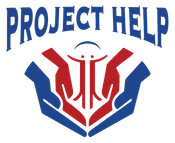Source: Where does a Veteran turn for help if they desire to tackle their PTSD? Here are a list of options in seeking PTSD treatment and support…
The staggering number of those that have served in the military and now have PTSD is very real. Over twenty percent of all Veterans have PTSD, especially those that have served in combat situations. PTSD affects every aspect of the soldier’s life, even beyond the war zone.
“Veterans living with PTSD is like living a twenty-four hour nightmare,” says Sandy Mitchell, Founder of Project Help, and non-profit organization that assists Veterans and their families in need.
“PTSD is not just something you acquire and can forget about when your term in military service is over. It is a condition of the mind and of the heart that is carried with them for the rest of their lives.”
Project Help is just one of many community non-profit organizations that have stepped up to the plate in assisting Veterans and their families in need from a number of angles. Connected with a series of aftermarket treatment providers, Project Help encourages Veterans suffering from PTSD to seek one of the counseling organizations that provide therapy solutions. Aside from just therapy, Project Help provides a list of a number of providers that engage in modalities aimed at relieving stress and healing.
Another organization that has made a significant impact in the lives of Veterans with PTSD is Save A Warrior. Based in Malibu, California, and New Albany, Ohio, Save A Warrior is a Warrior founded organization that originated on the principle that each Veteran life is that important and worth saving. Without judgement, a Veteran can enroll in the Save A Warrior Program. The one week “war detox program,” includes the practices and methods of meditation, talk therapy, group sessions, setting and attainment of goals, and physical team building activities, which have served over 600 Warriors since its inception.
Jake Clark, President and Founder of Save A Warrior, shared in an interview, “Save A Warrior has had a 100% success rate, we have not lost one Warrior that has enrolled in our program. We have seen a number of circumstances where Veterans were on the cliff of self-destruction and becoming a statistic, where they after completing our program, they would then come back to Save A Warrior to help other Veterans.”
Save a Warrior was featured on CNN, in the segment, “When the War Comes Home.”
The Office of Public and Intergovernmental Affairs, Department of Veteran Affairs is the division that addresses PTSD issues and concerns. Set as a new policy at the VA, every Veteran is screened and evaluated for PTSD. A number of new tools have been adopted by the VA in handling PTSD cases. More about how the VA is addressing PTSD can be found on their website.
The first step for a Veteran seeking help for their PTSD is to find a support group in their local area that has ties to resources, counselors, and therapy. In April of 2018, the Neptune Society compiled a comprehensive list of local-regional support groups which Veterans may reach out to in dealing with PTSD. From national organizations, to local legislative offices, from peer to peer support groups to national crisis hotlines, the list provides an abundance of available resources.
Family members of Veterans are also affected by PTSD. Family members are encouraged to gain an understanding of the root causes of PTSD in their Veteran loved one’s life. Having compassion and empathy will go a long way in supporting the Veteran family member with PTSD. Veterans that have PTSD may mask the PTSD with over-coping mechanisms which may include unhealthy addictions to alcohol, drugs, and other self-inflicted abuses. It is important not to judge or shame the person living with PTSD, but rather encourage them to deal with the trauma that attributed to the PTSD.
Samuel K. Burlum is an Investigative Reporter who authors articles related to economic development, innovation, green technology, business strategy, and public policy concerns. Samuel K. Burlum is also a career entrepreneur, who currently lends his expertise as a Consultant firm to start-up companies, small businesses, and mid-size enterprises, providing advisement in several areas including strategic business planning, business development, supply chain management, and systems integration. He is also author of “The Race to Protect Our Most Important Natural Resource-Water,” and “Main Street Survival Guide for Small Businesses.”

